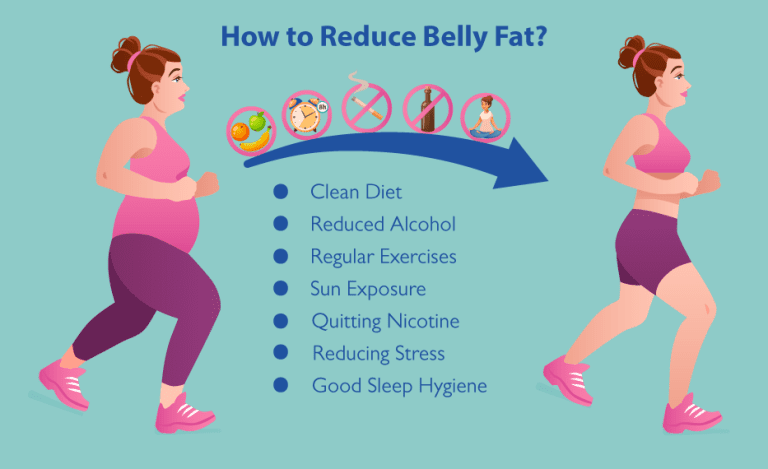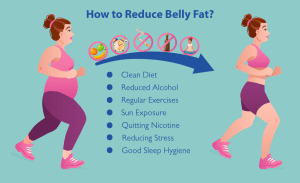About Irritable Bowel Syndrome
A lot of people are suffering from Irritable Bowel Syndrome (IBS) and many of them are not even aware of the same. Irritable bowel syndrome( IBS) is a gastrointestinal disorder where the disease commonly manifests in the form of occurrence of frequent pain in the abdomen and problems of different types related to the bowels including consistency of bowel, bowel habits, constipation, diarrhea, and /or sometimes both constipation and diarrhea. The spasmodic movement of the intestines is not normal and it also interferes with the movement of food through the intestines. The troubles caused by the disease significantly impact some people and they need help under medical supervision. In contrast, some have mild problems which they get along with some modifications in their lifestyles.
IBS can be categorized as IBS with constipation (IBS-C), IBS with diarrhea (IBS-D), or IBS with both constipation and diarrhea (IBS-M).
Type of abdominal Pain experienced by a person afflicted with IBS?
The pain can be in the form of cramps in the abdomen, spasmodic pain, or slow and constant aches. The intensity and pattern of the pain also vary from person to person. Some individuals may have more discomfort after ingesting food. Some people experience diminished or no pain after passing stool. The scale of pain hovers from very severe to tolerable for some persons. In the case of some people continued stress or episodic anxiety can also trigger IBS. Some individuals experience discomforts associated with IBS after eating in general or in particular after eating something specific.
Bowel problems associated with or caused by Irritable Bowel Syndrome (IBS)
- Relieving discomfort or pain or cramps in the stomach after a bowel movement
- Abdominal pain discomfort along with watery stools coupled with an inability to hold the urge to use the bathroom
- Multiple visits to the bathroom for bowel movements
- Cramps in the abdomen along with bowel movements
Some people experience constipation as a result of IBS; they have difficulty passing stools as their stools are hard. These people may not have the urge to go for bowels less than thrice a week. They may have felt that their bowels evacuation has not been complete and some stools are still there.
Some individuals face constipation and diarrhea both due to IBS.
Since IBS manifests differently across people, there are other symptoms also which are experienced by those suffering from it; these may include:
- Flatulence
- Bloating
- Inability to digest food
- Acid reflux
- Nausea
- Stool with Mucous
Other complications that may also happen due to Irritable Bowel Syndrome
Prolonged constipation and diarrhea can cause hemorrhoids or piles. In the case of hemorrhoids, the veins around the anus get inflamed. The patients with constipation sit for a longer duration for passing stools and also strain resulting in hemorrhoids/anal tears.
Some people may have more consequences of IBS which may not be common for all but one or more types of discomforts may be present in individuals. These may include pains occurring in different parts of the body, indigestion, insomnia, urge to pass urine frequently and/or urgently; overall lack of fitness and fatigue in the body, and dehydration due to diarrhea.
Some individuals have a lot of stress and anxiety due to IBS. Their movement outside their homes is also impacted by their condition. They may sometimes have to alter their schedules or leave the place, either workplace or during social gatherings, due to discomforts arising out of IBS. These types of happenings taking place frequently make them anxious and stressed. This may also lead to depression or mood disorders.
Do you need to see your doctor for this disease?
It depends on the frequency and intensity of the problem. Occasional constipation or diarrhea may not necessitate seeing a doctor. However, if the problems persist and continue over a period of time or keep worsening one should definitely see the doctor.
Food and IBS
People with IBS have different food triggers. For example, some individuals having IBS may digest dairy, while, the symptoms of some others may be worsened with intake of dairy. Food tolerance by individuals varies. The people having IBS have to identify the specific foods they are not compatible with vis a vis IBS. Reading labels carefully while buying packaged foods can avert the instances of accidental intake of irritability-inducing foods.
Though triggers of IBS vary from person to person however there are some food items that are observed to be more related to IBS across a multitude of individuals:
Gluten – most people have improved the condition of their IBS by removing gluten from their diets.
Wheat bran and other insoluble fibers contained in whole grains and vegetables can worsen symptoms for some persons, Though, soluble fiber is considered good for gut health and helps in IBS; however, the soluble fiber content in beans is not tolerated by some individuals.
Milk and milk products are responsible for irritating the gut of people who cannot tolerate such products for reasons attributable to IBS.
The fat content of processed and fried foods. It is difficult for the IBS suffering people to process and digest the highly fried items. It entails more loads on their gut which is already struggling to balance itself.
Oligosaccharides containing foods such as beans, peas, etc. are hard in the gut of many individuals having IBS. Oligosaccharides are not digested by small intestines and further ferment in the gut. This results in abdominal discomfort including diarrhea, flatulence, and bloating. Overnight soaking of lentils and beans helps in reducing their impact on IBS.
High sugar foods also adversely impact the gut of people having IBS. Even substitutes of sugars are equally harmful as the body has to deal with such chemicals to process them.
Some individuals having chronic symptoms of IBS have problems with eating garlic and Onions; these foods consist of fructans which can trigger irritability.
There are certain food items that are found good in relieving the symptoms of IBS:
It is recommended that a diet that is low in FODMAPS is helpful in reducing the severity of IBS. FODMAPS are carbohydrates that ferment. Our small intestine finds it difficult to absorb the FODMAP diets. These foods then travel to the large intestine where they ferment. At this stage they cause a number of abdominal discomforts like cramps, pain, bloating, gas, etc.
The following may specifically cause more discomfort:
- Wheat and wheat products
- Certain vegetables viz beans and lentils
- Apple and mango
- Milk and milk products
- Artificial sweeteners
Individuals having IBS can try low FODMAP diets to see differences in their condition. Such foods include lactose-free milk banana, kiwi fruit, grapes, pineapple, etc. Amongst vegetables, potato, spinach, pumpkin eggplant, carrot, etc shall be preferred.
Further probiotics are also found to be helping relieve the symptoms of IBS. The gut flora of people suffering from IBS gets out of balance and several strains of probiotics are found to restore this balance.













